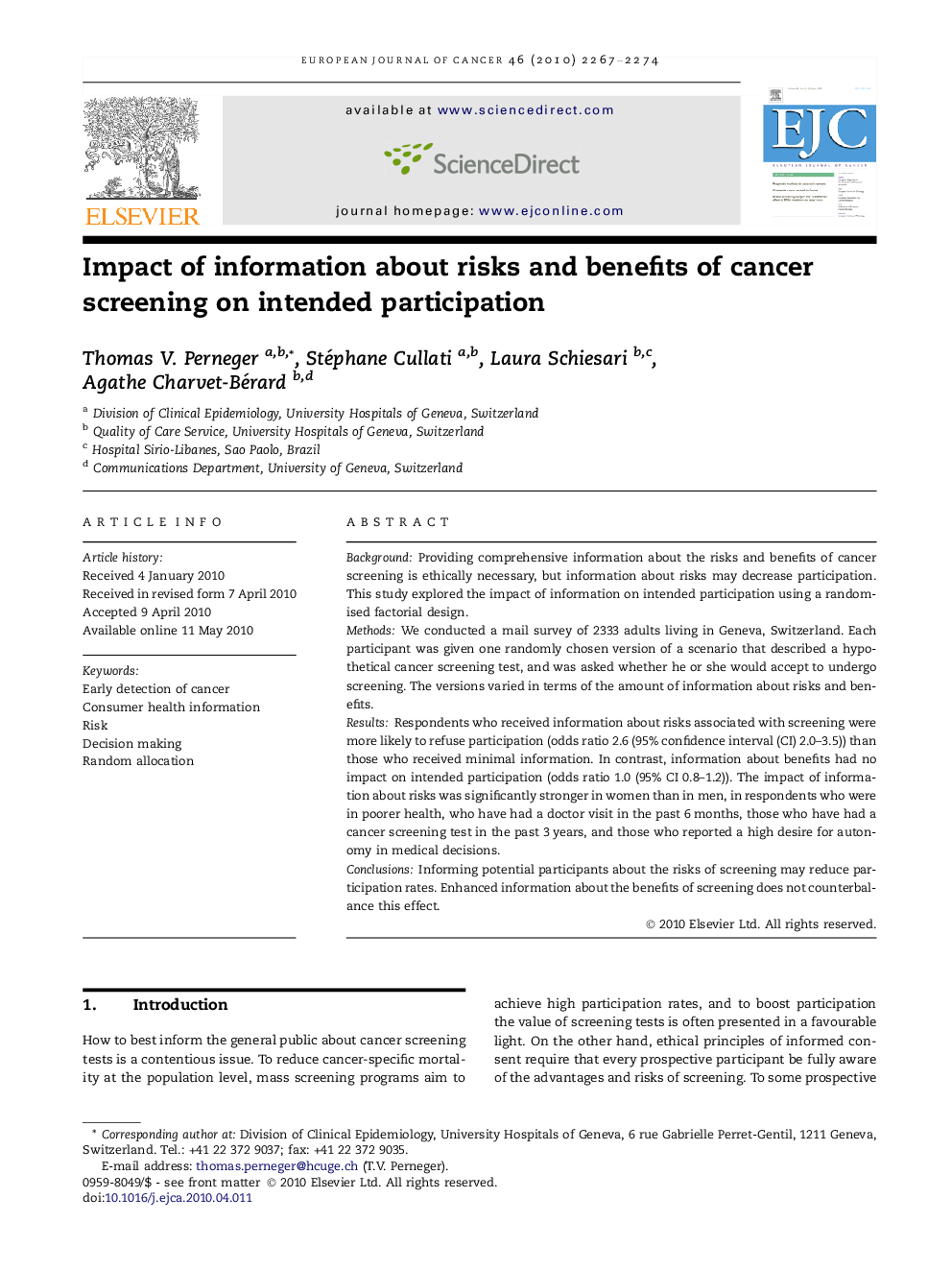| Article ID | Journal | Published Year | Pages | File Type |
|---|---|---|---|---|
| 2123297 | European Journal of Cancer | 2010 | 8 Pages |
BackgroundProviding comprehensive information about the risks and benefits of cancer screening is ethically necessary, but information about risks may decrease participation. This study explored the impact of information on intended participation using a randomised factorial design.MethodsWe conducted a mail survey of 2333 adults living in Geneva, Switzerland. Each participant was given one randomly chosen version of a scenario that described a hypothetical cancer screening test, and was asked whether he or she would accept to undergo screening. The versions varied in terms of the amount of information about risks and benefits.ResultsRespondents who received information about risks associated with screening were more likely to refuse participation (odds ratio 2.6 (95% confidence interval (CI) 2.0-3.5)) than those who received minimal information. In contrast, information about benefits had no impact on intended participation (odds ratio 1.0 (95% CI 0.8-1.2)). The impact of information about risks was significantly stronger in women than in men, in respondents who were in poorer health, who have had a doctor visit in the past 6Â months, those who have had a cancer screening test in the past 3Â years, and those who reported a high desire for autonomy in medical decisions.ConclusionsInforming potential participants about the risks of screening may reduce participation rates. Enhanced information about the benefits of screening does not counterbalance this effect.
